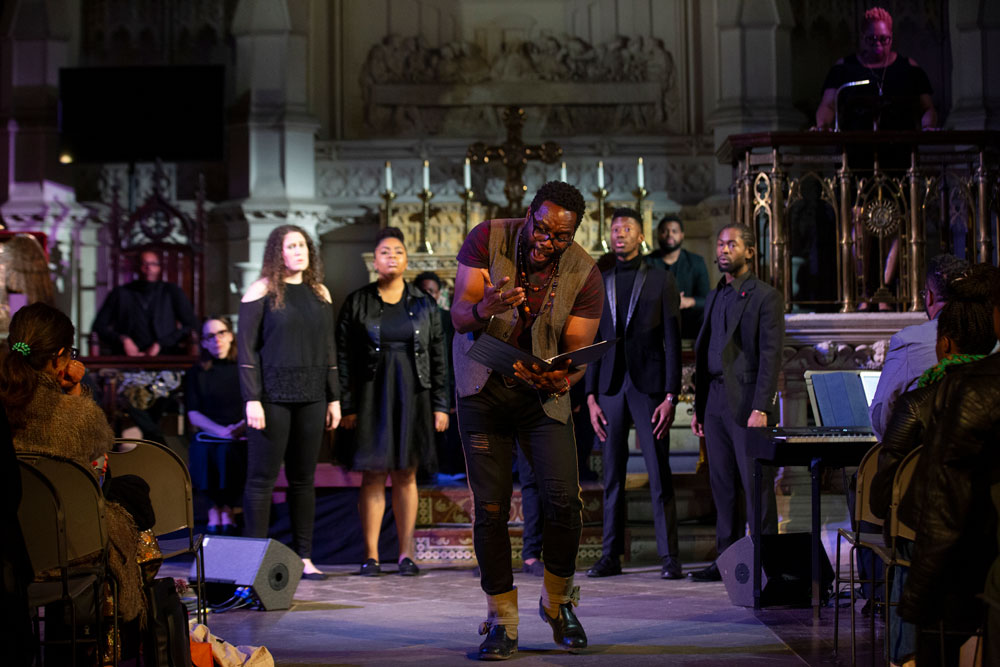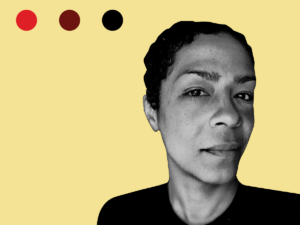
November 20, 2020; Washington Post
At NPQ, we have long lifted up the importance of the arts. Back in April, NPQ’s Cyndi Suarez noted that, “While some may view art as a luxury, the artist’s role is to change the world—to make us feel, so we can think.” An example of this process at work is provided by a Zoom theater reading hosted last Thursday by New York’s Mount Sinai Health System.
The two-hour event was the latest installment of a project titled “Theater of War for Frontline Medical Providers,” organized by Theater of War Productions. Founded in 2008, the group has staged over 1,700 performances, using theater to help audiences address pain and suffering in a variety of arenas, including war, domestic violence, racialized police violence, political violence, natural disaster, addiction and substance abuse, gun violence, and genocide. The group has 23 projects in sum.
As the organization details on its website, the group “works with leading film, theater, and television actors to present dramatic readings of seminal plays—from classical Greek tragedies to modern and contemporary works—followed by town hall-style discussions designed to confront social issues by drawing out raw and personal reactions to themes highlighted in the plays.”
The theater reading program for frontline medical workers was developed in May, as the pandemic’s first wave ravaged the US. Hospital systems organizing showings include Johns Hopkins, Lincoln Medical Center in the Bronx, Lenox Hill Hospital in Manhattan, Queens Hospital, Columbia University Irving Medical Hospital, and a performance for the staff of Médecins sans Frontières. Upcoming performances are scheduled for the staff of the American College of Emergency Physicians and a public event sponsored by the Montefiore Health System in the Bronx.
Bryan Doerries, the group’s artistic director, tells Washington Post theater critic Peter Marks that the frontline worker program began with a private showing for Johns Hopkins University in Baltimore. “In that and the public Zoom events that have followed,” Marks writes, “he’s identified a psychic exhaustion in health-care-industry audiences—and anger at having to justify attention to the pandemic.”
“The most common response is this profound and deep sense of betrayal by the public that denies the existence of COVID or that can’t adapt to preventive measures in service of a greater good,” Doerries tells Marks. “It’s a double betrayal, where these health-care providers have to be the ones convincing the public that the threat is real,” and be responsible for healing, too.
Marks observes that the readings aim for the classical goal of catharsis, the purging of emotion—an impulse that “was evident all evening.” The two-hour gathering began with 20-minute excerpts from each of two Sophocles plays, Philoctetes and Women of Trachis, with the roles read by Frances McDormand, Frankie Faiso, Marjolaine Goldsmith, and Nyasha Hatendi.
Sign up for our free newsletters
Subscribe to NPQ's newsletters to have our top stories delivered directly to your inbox.
By signing up, you agree to our privacy policy and terms of use, and to receive messages from NPQ and our partners.
As Marks points out, both plays address “questions of suffering, and the infliction and mitigation of pain.” Marks adds that, “in Philoctetes, a soldier exiled to an island must deal with agonizing wounds, and in Women of Trachis, a wife carries out a plot against her unfaithful husband that unwittingly ends with his fatal poisoning.”
The juxtaposition of classical theater and computer technology may seem unusual, but the themes of the play resonate with frontline workers. As Doeeries explains, “What these Greek plays traffic in is a certain kind of moral suffering. The plays address this directly, in a way the clinical world won’t necessarily go to. So there’s something about seeing depictions of these moral and ethical challenges portrayed in a polytheistic Greek framework, where people’s defenses go down.”
After the performance, Doerries facilitated a panel of medical workers and support staff. Later he invited viewers, who numbered over 1,000, to chime in. One advantage of the computer platform is that it opened the discussion to participants far away from New York City, including India, Spain, New Zealand, and South Africa.
“Where Heracles was begging his son to end his misery—that really spoke to me,” Jadore Mattis, a nurse at Mount Sinai West medical center, remarked. “To look helplessly upon the suffering, that’s what we have to do, sometimes,” added David Van De Carr, a respiratory therapist at Mount Sinai Morningside Hospital.
“As a housekeeper,” Trina Young of Mount Sinai West observed, “we are the only ones who go into the rooms, beside the doctors, nurses, and respiratory therapists.”
After the panel, audience members joined in on the discussion. One Zoom participant noted that, “Healing the virus and the democracy are falling on the shoulders of the young.”
What comes out of these readings? Doerries offered his take toward the end of the two hours: “People ask me where the hope is in all this tragedy. We do all these plays about gods, but really, what we’re talking about is the divine, in humans.”—Steve Dubb
Correction: This article has been altered from its initial form. Theater of War is organized as an LLC, not a nonprofit.













